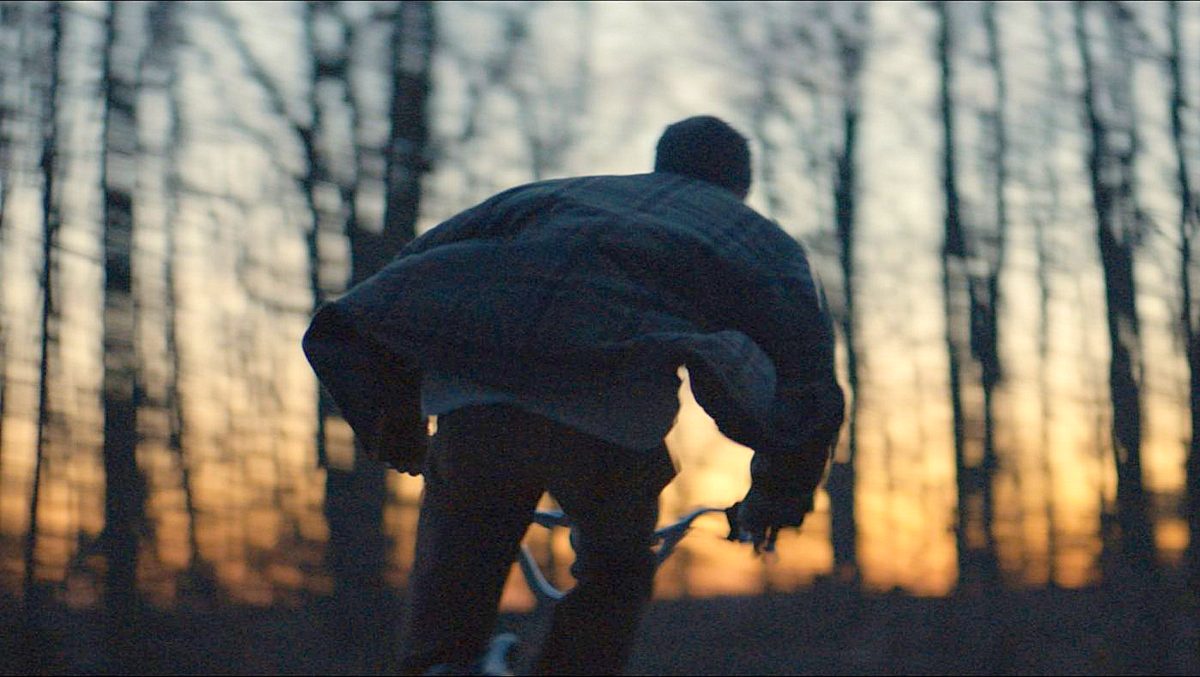
Luis Gerard is Puerto Rican by birth. Movies have always been a part of his life. His father was a film buff and critic. “At age 3, we had a game, “the movie game,” in which he said the title of a film we had seen together. I had a few seconds to come up with another title.” says Luis.
He continues “At age 4, he screened King Kong for me, which apparently got me hooked. Later, he and my grandparents had an art house cinema where I grew up. Maybe that’s why Cinema Paradiso is my favorite movie; it’s very much like my life.”
“I did not attend film school; however, I wrote and directed my first short film in college. Since I had no sound equipment, I decided to make it a silent movie as an experiment to see if I could tell a story. Nevertheless, the short was selected for the Venice Film Festival, which gave me the confidence to do another. My second short was purposely made as an opposite exercise to the first; it was 80% dialogue, with a woman confessing to a Catholic priest.
That one traveled through festivals and eventually got me an invitation to direct commercials, which turned into an unplanned career. “The Wake” is my third short film and my attempt to focus on making movies.” says Luis.
Watch the Official Trailer for The Wake directed by Luis Gerard
Luis is a very visual person. He is also a photographer. Luis loves the power of telling stories through images. “I would call myself a visual storyteller with an attraction for darker subjects” ,says Luis. “But in advertising, I’ve mostly done comedy, which is interesting because I don’t think it reflects who I am. Still, it’s probably made me more versatile as a director.”
Synopsis for The Wake: A restless 15-year-old has spent his life surrounded by death, raised in his parents’ funeral business in “small town USA.” He views his alcoholic father as profiting from the dead. While a wake is held in his parents’ funeral home, he breaks into the deceased’s house, counting on it being empty. In his view, the dead no longer need what he pockets. He recruits his deaf-mute younger brother to join him in his robberies, unaware of what the consequences may be.
indieactivity: How do you choose a project to direct?
Luis Gerard (LG): The story must appeal to me, and I must see how it translates into images. I tend to have an inclination to wrap social commentary in genre; I am attracted to the liberties that genre gives me to deal with themes I care about
Why filmmaking and screenwriting? Why did you get into it?
Luis Gerard (LG): Given what I described in question one, I don’t know what else I could’ve done. I grew up loving movies and growing up in an art house theatre exposed me to amazing films; it taught me to appreciate good cinema, setting a path for the movie I wanted to make.
How can a filmmaker, if he so chooses, distribute his film? How do you get it in front of an audience?
Luis Gerard (LG): Distribution is a different ball game. Before, it was about getting your movie to screen at the cinemas; now, you need to sell it to a streamer. There’s more demand for content than ever before, but it is harder for an independent filmmaker to get your project through. Festival screenings are a way to get people to discover your short film and, hopefully, a way to sell it to a distributor and, more critically, find a financier for your next project. But it all starts with having a script you can shoot with a low budget that may attract actors, and if you get a solid name on board based on your script, you are almost there.
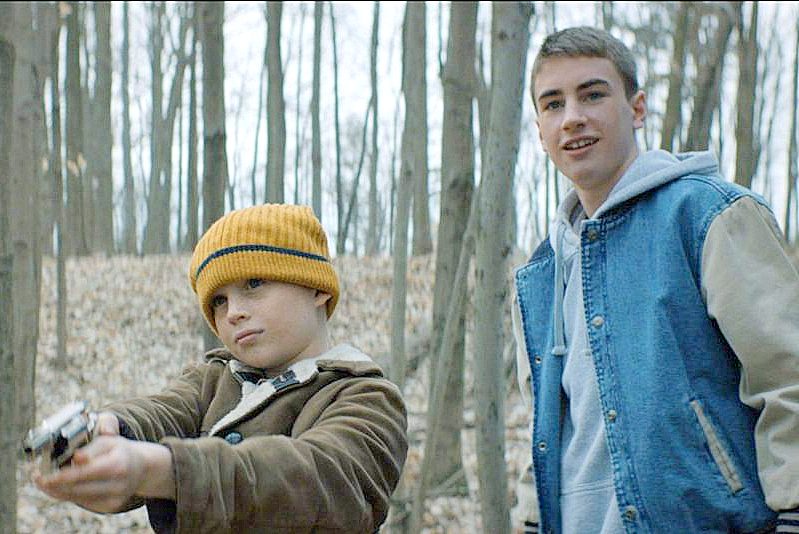
Is there anything about the making of independent film business you still struggle with?
Luis Gerard (LG): The search for money never goes away. Making movies is very expensive, even with the new cameras and equipment. You cannot do it alone, you need a team of people working with you, in front and behind the camera, in the post production, and everything costs money. Lots.
Talk to us about your concept of collaboration?
Luis Gerard (LG): The idea, the concept of the film, starts with me. It might be a piece of news I see on TV, a short story I read, or a dream. Something lingers in my mind, and it grows and changes until it becomes a story that turns into a script. I usually work alone; I might discuss the idea with my father and go back and forth with him. Then, I go back alone and rewrite (writing is easy, but rewriting is tricky, as Hemingway said).
Once the script is done, I collaborate with the DP, the editor, the production designer, and the actors. Filmmaking is a team effort, but it must have a singular vision, that of the director. Then, the team makes sure that the vision comes through.
What uniqueness do female directors/filmmakers bring to film/tv/cinema?
Luis Gerard (LG): A different perspective, more introspective. Curiously, as female directors were kept from directing (it was a male-centric industry for a long, long time), now they’re behind the camera often, bringing a freshness to storytelling.
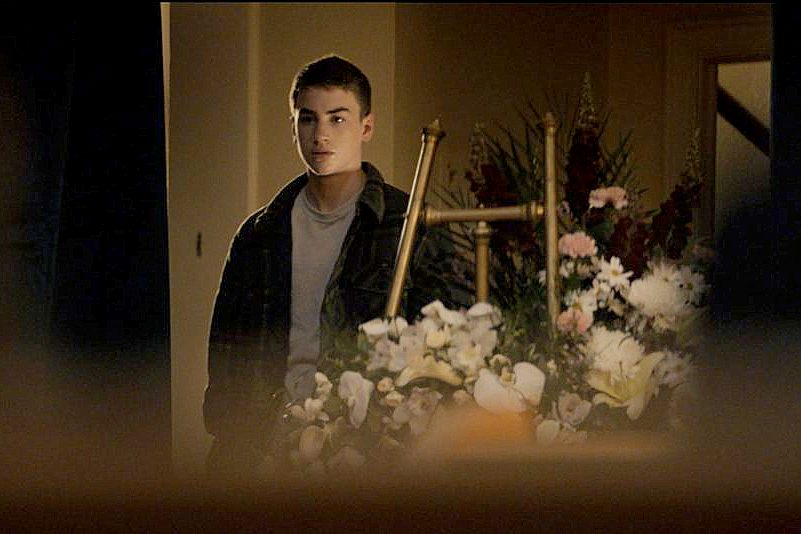
When you are offered a project, what things do you put in place to deliver a good job?
LG: I must believe in the story or film I am making. I must believe it requires the best of me as an artist. It will show if I don’t believe in it, so it is not worth doing it. Filmmaking is too hard to waste time on something you don’t believe in.
How do you find the process of filmmaking as an indie filmmaker?
LG: Exhausting, from beginning to end. First, it’s giving birth to the story, then finding the money, then shooting it, then finishing the post, then getting it seen through film festivals, which is not easy, then getting it to theatres, and then the whole circle starts again.
Why would you choose an actor, writer or producer? What do you look for?
LG: For me, the most important thing is finding the right producer. He must share your vision, cover your back and try to raise the financing and handle the economics of production, then pick your team behind the camera, notably the DP, the production designer, and the editor… finally, the actors. You need actors that understand their characters and what you are trying to say. It is essential to communicate with your actors and make them feel at ease… they are the “face” of your story.
At what period in the filmmaking process, do you need to start planning for distribution?
LG: Usually, from the beginning, but that’s not always the case in independent cinema.
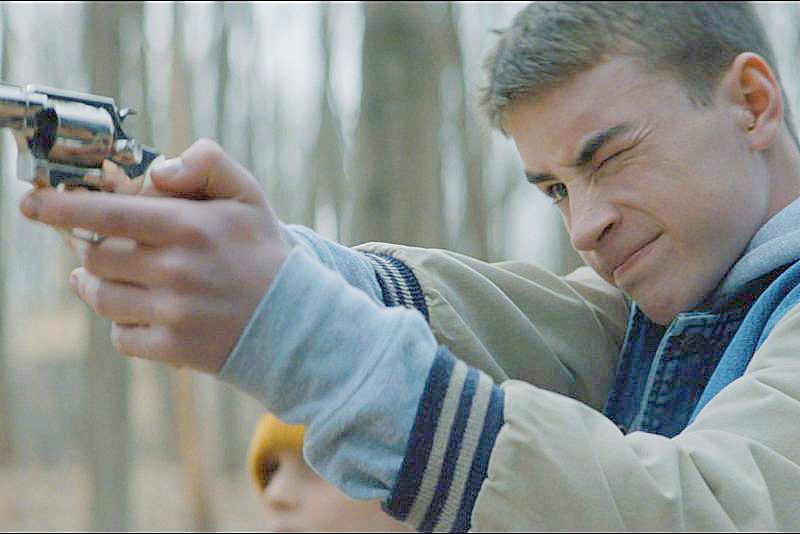
Indie filmmaking is a model of zero budget. How do you get a film to the audience with that budget?
LG: It must have an edge, a vitality that goes beyond budget and hypnotizes the audience. Genre, in particular horror, or comedy, are means of doing interesting and innovative work with little money
How do you think filmmakers can finance their projects?
LG: Unless you inherit from a rich uncle, I wouldn’t advise it. Many film directors have lost their houses and life savings on a project they couldn’t complete. Just look at Orson Welles. The director must develop a script that can be done with limited resources and that can hook a known actor.
Usually, you can get the limited funding required to finance your film from private investors, tax benefits, corporate donations, and, if you are lucky, living in a country that may provide financial support to local filmmakers through subsidized funds.
Describe your most recent work, or film, take us through pre, production and postproduction?
LG: The short film ‘THE WAKE.’ It’s about two brothers, one fifteen, the other ten, who embark on a journey of robbing the houses of the recently departed while a wake is held in their honor. What makes it possible? Their parents run a funeral parlor. Now, this could be a comedy, a tragedy, or a suspense movie. But, I opted to make it a suspenseful tragedy and a character study of two very different brothers since the youngest is deaf and more innocent than the older brother.
So, I wrote the script in 2017 after reading about several mass shootings in the US. Then I wanted to write a story that touched on the subject of guns and how kids perceive them without doing something I had seen before, like a school shooting. I was interested in writing a story that, on the surface, was simple yet not very black and white.
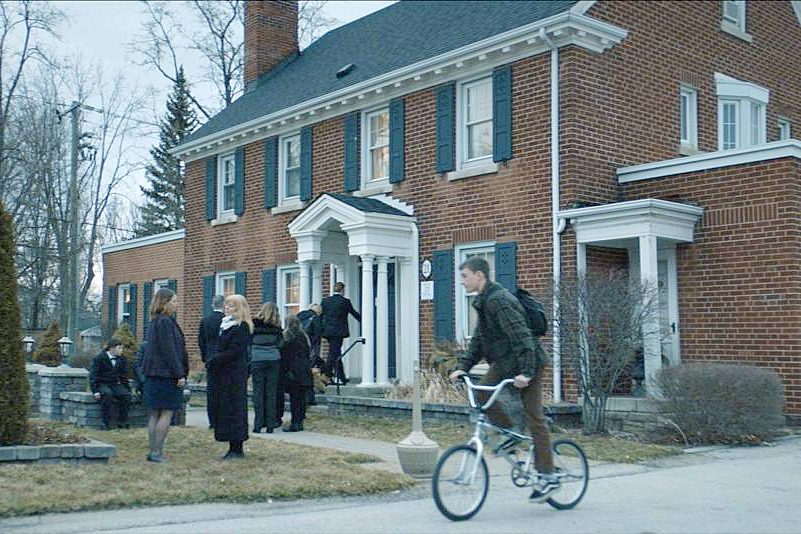
This was a tricky film to cast, mainly because the kids were unprofessional actors, and one needed to be deaf. Zander Colbeck-Bhola, who plays MARTIN, was the first one I saw in an audition. He is deaf in real life and has never acted but had the innocence I was looking for; however, I couldn’t commit to him until finding the older brother, who was the main character.
A few months after seeing Zander, Isaac Kragten came to an audition and selecting him to play WALTER was one of my best decisions. His role was very demanding as he had to learn all his dialogue in ASL (American Sign Language), which required a lot of studying on his own time. The role was also physical, as he needed to run and cycle a lot. More importantly, it required an actor with a particular charisma.
Walter has the traits of a sociopath; he does plenty of questionable things in the film, but I still want the audience to care for him. Despite the film’s short length, I tried to make the character three-dimensional, but I needed to find someone with a particular angel, and that’s not easy because it’s something the actor has or doesn’t have and not something I can write.
As for the parents, I had seen Robert Fulton and Patty Sullivan in early auditions and loved them, but I wanted to find the boys before locking the rest of the family. It was essential to put together a credible family. Robert plays GARY, the town’s mortician and the kid’s father. He has a strenuous relationship with his eldest son, constantly pushing him to live the life he hates.
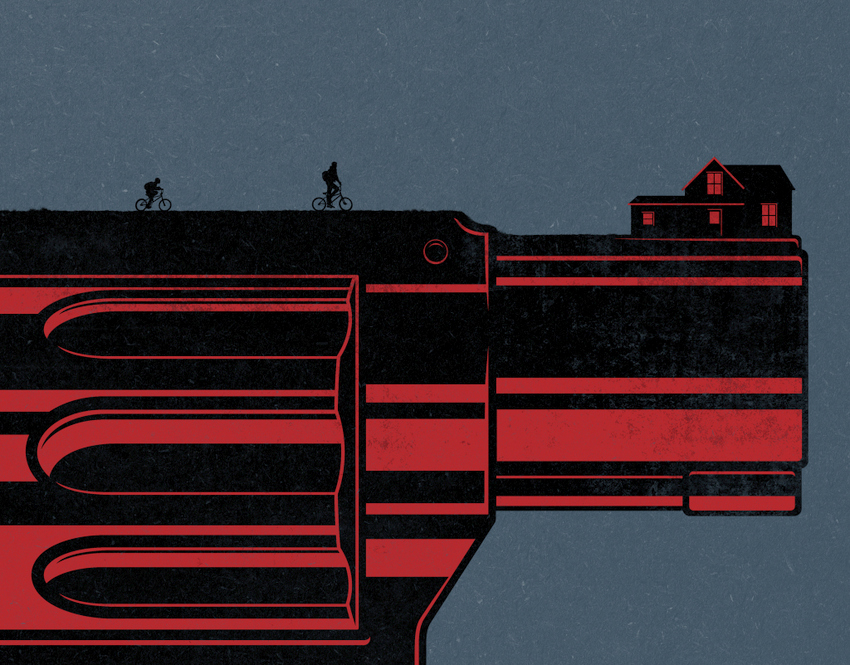
His screen time was considerably shorter than Walter’s, but the relationship with his son is critical to the story. I wish I had more time to go deeper into their relationship, but I needed an actor who could be very telegraphic and say a lot without words, and Robert provided that. The funny thing is that his real-life personality couldn’t be more different from the character he plays.
IVY, the mother, is played by Patty Sullivan, a TV star in Canada. Many there know her as the female version of Mr. Rogers. Her background working with kids in television added a depth that I love. Her expressions said way more than words, which is cinema I don’t know how to label this film. Some festivals consider it a drama and play it in their drama section; other festivals treat it as a thriller. Recently it was nominated for best drama at Cordillera International Film Festival, but right after that, it played at HollyShorts in the thriller block. Although at times I find that confusing, I like that it’s hard to put a label on the movie.
What is your experience working on story, screenplay, production, premiere and marketing?
LG: Writing the story was beautiful; production was a nightmare. Shooting in Canada with a production team I had not worked with proved to be very challenging. The fact that the main protagonists were very young limited our shooting hours, making things even harder. In addition, Zander, the younger brother, was deaf and working on his first film. This required a lot of preparation and patience on my part. On the other hand, Isaac (the older brother) had to learn sign language, so I needed an ASL speaker by my side to make sure the signing was spot on.
All the adults are professional, established actors in Canada, and it was a delight working with them. It was a delight working with the two youngsters too.
The post was complicated because it was done during the worst of COVID; hence, it took forever, as everyone worked from home and sometimes in different countries. So, finishing took longer than usual, but I am happy with the results. The film is now at various festivals worldwide, winning a few awards already.
How did you put the crew and cast together? What was your rehearsal process and period?
LG: I didn’t write with a cast in mind. Early on, I decided I wouldn’t shoot the movie unless I found the right pair to play brothers, so auditions went on for a while. Once I had my cast, they had about a month and a half to learn their lines in ASL. Braden Kenopic, a young Canadian actor, also deaf, was our ASL coach and played a crucial role in the production.
He recorded himself interpreting everyone’s lines in ASL and then sent the cast his video so they could practice on their own time. Braden was with us during every rehearsal and the shoot, so he was vital not just for the cast but for me as well; I wouldn’t move from a take unless he approved the ASL side. The last thing I wanted was to disrespect the ASL community with something that wasn’t genuine, so everyone worked hard to ensure that the hand signals were perfect.
Regarding the main cast, one crucial aspect was finding ways to build chemistry between the boys, so their relationship on-camera felt genuine. They didn’t know each other and couldn’t communicate since one was deaf and the other couldn’t speak ASL. On top of that, at nine years old, Zander was still a boy, and Isaac a teenager (15); kids that age don’t hang out together, so building that on-screen chemistry during prep was essential for the movie to work. For this, I held many rehearsals with just the two of them, which helped immensely. I also had them go out with a translator to escape rooms and arcade rooms in their free time. I wanted them to have fun together and build a rapport off set, which eventually came through on the screen.
What and how long did it take to complete the script?
LG: Writing the script took a few days; the writing was easy once I had the idea. I wrote it alone but shared it with a few people and made minor tweaks, but I barely touched it because I didn’t think I would ever shoot it. So, I shot the screenplay’s first draft, which is rare.
Did the tight shooting schedule make it harder or easier? How did it affect performances?
LG: It made the shooting very hard, but it all looks effortless and beautiful on the screen. No matter how hard it was to shoot, it doesn’t show in the cast’s performances; the kids are great..
How much did you go over budget? If you did, how did you manage it?
LG: I used my savings to make this movie, and I’m still hurting, so I don’t advise it to anyone.
When did you form your production coy – and what was the original motivation for its formation?
LG: I created a production entity for “the wake” only. It’s the usual procedure, as each film is its own financial and artistic entity.
What other films have you written and made?
LG: this My first short, “Que Sera,” was an experimental silent film, a narrative exercise selected for competition at the Venice International film festival. My second short film was a 35 MM experiment that relied entirely on words. “THE WAKE” is my third film. I recently directed the second unit on Adam Sandler’s ‘HUSTLE’ for Netflix
What do you hope audiences will get from the presentation of your film?
LG: That it’s an engrossing story about two brothers, two kids that love each other, and how it all ends in tragedy because of the availability of guns. I hope audiences feel there’s a solid story with something to say and understand the message.
What are your future goals?
LG: I have three feature scripts ready to go, plus a script for another short. I want to be a feature film director, which is what I have always wanted to be.
Tell us about what you think indie filmmaker need in today’s world of filmmaking?
LG: The equipment is available, and streaming has made enormous demands for more content, yet the source of money is as challenging and more evasive than ever. A writer/director-filmmaker needs to find a producer he can trust who shares his vision so that he can relegate the time-consuming efforts of raising financing and handling the economics of a shoot. Finding the right producing partner is the key.
What else have you got in the works?
LG: I have a drama set in Mexico, WHERE ONLY THE DEVIL DARES, where three stories cross paths, a thriller set in almost real-time, titled CHOPPER, and a suspense-drama and character story of two women with the theme of the undocumented alien as a backdrop, titled A BLIND EYE. They are all ready to go… if any adventurous producer happens to catch “The Wake” and likes what he sees, I’m here, ready to go.
Tell us what you think of the interview with Luis Gerard. What do you think of it? What ideas did you get? Do you have any suggestions? Or did it help you? Let’s have your comments below and/or on Facebook or Twitter.
Follow Luis Gerard on Social Media
Website
IMDb
LinkedIn
Instagram
Vimeo
Richard Green Documentary, ‘I Know Catherine, The Log Lady’: Premiere in NYC, LA May 9th
Lynchian Doc I Know Catherine, The Log Lady Makes Hollywood Premiere 4/17, Rollout to Follow
In Camera by Naqqash Khlalid Launch on VOD April 29
Naqqash Khlalid’s Directs Nabhan Rizwan. In Camera stars an EE BAFTA Rising Star Award Nominee.
2025 Philip K. Dick Sci-Fi Film Festival Award Winners Announced
Vanessa Ly’s Memories of the Future Awarded Best PKD Feature
Dreaming of You by Jack McCafferty Debuts VOD & DVD for April Release
Freestyle Acquires “Dreaming of You” for April 15th Release
Hello Stranger by Paul Raschid set for London Games Festival & BIFFF
The film Is set for an April 10th Premiere at The Genesis Cinema in London (LGF) and BIFFF
Daydreamers Official Trailer by Timothy Linh Bui: Released by Dark Star Pictures
Daydreamers Vietnamese Vampire Thriller – May 2nd release









